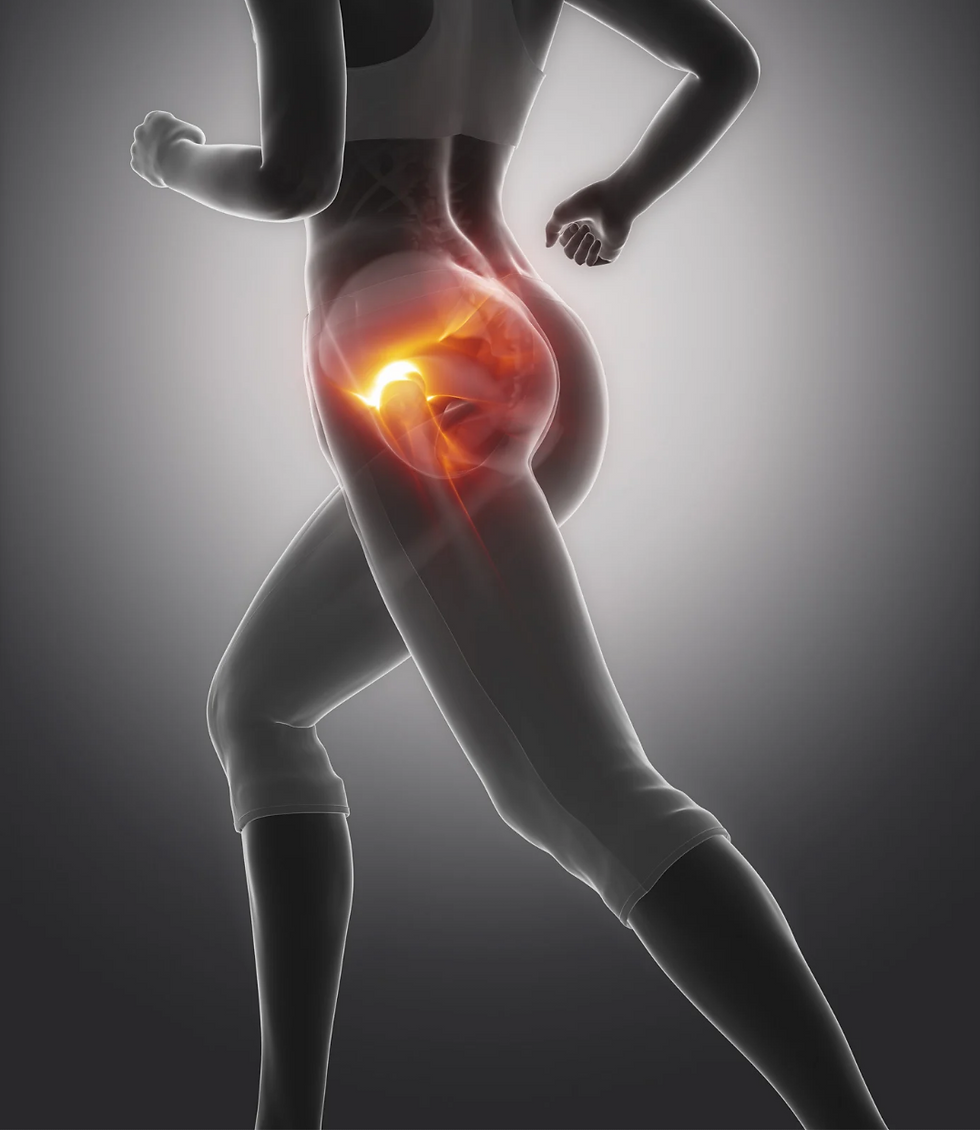Physiotherapy For Frozen Hip
- Carlona Nazareth
- Mar 28
- 2 min read
Frozen hip, also known as adhesive capsulitis of the hip, is a condition characterized by pain and reduced mobility due to inflammation and thickening of the hip joint capsule. The tissues around the hip joint thicken, causing stiffness and pain. This pain can be felt in the buttocks and the groin and may radiate to the thigh.
This condition occurs suddenly without a previous injury, and it can subside completely within one to three years.

Stages of Frozen Hip
In the first stage, certain changes are observed in the hip joint cavity, and symptoms develop over one to three months. These include pain when moving the hip, aches at rest, and limited activity due to restricted hip motion, especially when moving the leg away from the body.
In the second stage, known as the freezing stage, there is increased pain, a limited range of motion, and discomfort even at night.
In the third stage, known as the frozen stage, the range of motion is further reduced, and pain persists over a long period in the hip joint.
The final stage is marked by reduced pain but continued limited mobility of the hip. This stage can last over a year, significantly restricting daily activities.
The diagnosis of a frozen hip can be made through clinical history, physical examination, X-ray, and MRI to rule out other underlying conditions that may cause similar symptoms.
Treatment and Prevention
Depending on the stage of frozen hip a patient is in, treatment can vary. In the first two stages, the focus is primarily on pain management and range-of-motion exercises. In the latter two stages, treatment aims to slow the progression of changes in the hip joint through stretches and range-of-motion exercises.
Pain-relieving techniques may include massage therapy, heat therapy, the use of pain-reducing modalities, and manual manipulation. Home exercise programs are also prescribed, and patients are educated on proper techniques for walking, sitting to standing, climbing stairs, and performing daily activities during physiotherapy.
Additionally, corticosteroid injections and anti-inflammatory medications may be recommended based on the severity of the condition. In severe cases, a capsulectomy may be performed.
To prevent frozen hip, it is essential to maintain a healthy lifestyle with regular exercise, stretching, and a balanced diet. Addressing underlying conditions and injuries before they worsen is also crucial.
Comentários